Why Jada Pinkett-Smith's African Queens: Njinga is fiercely important
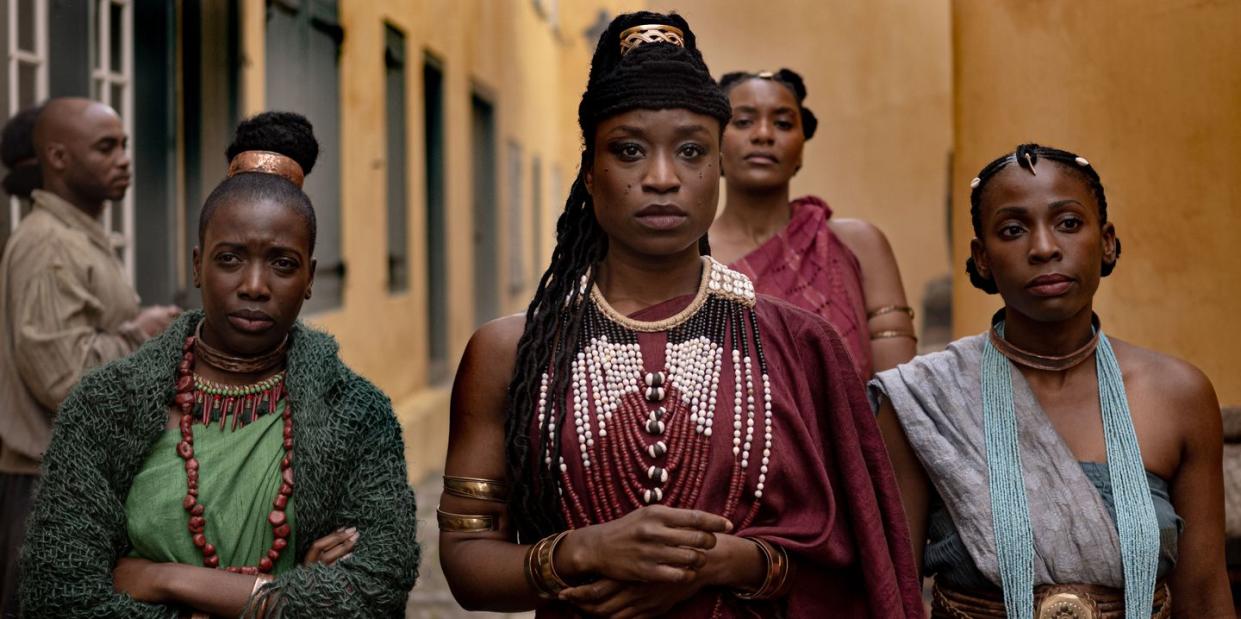
African Queens: Njinga spoilers below.
Jada Pinkett Smith's docudrama African Queens: Njinga is a series that is easy to devour in one go.
That isn't to say that it can be casually consumed with one eye on the television screen whilst the other scrolls up and down the phone. No: it commands your attention with its presence and authoritative air. It's as though the series is channelling Queen Njinga herself. Watch me and be educated. Watch me and be enthralled.
Queen Njinga's story is one of perseverance, commitment and love – love for and commitment to her people and the dedication to bring them the peace and safety every human deserves.
While some of this docudrama is an exercise in filling in the blanks owing to the exact details being lost over time, there can be no denying the efforts Njinga went through for Ndongo.
She fought valiantly and tirelessly to protect the people of Ndongo from being swallowed up by the transatlantic slave trade at the hands of the greedy, self-serving Portuguese slave traders.
While her decades-long campaign led to victory, it was momentary in Ndongo's history. The country, like so many others in Africa, eventually became prey once more to the brutal slave trade following the eventual death of Njinga, her successor and sister Kambu and the three 'female kings' who came after her.
Becoming aware of Njinga's struggle to bring to fruition the vision of peace she had for her nation, only for it to be eradicated after her death, left me bitter.
Yes, I know Africa was ravaged by slavery and so the knowledge that Ndongo, the modern day Angola, also fell victim to said trade was not new to me. What was new was Njinga's efforts to protect the nation and more notably her achievements.
Somehow knowing that she was successful in keeping that corner of Africa safe, only for it to be undone sets my teeth on edge.
This might be a hard concept for some to understand given that I myself have never been enslaved, but I cannot express how much rage and emotional grief that stirred up in me, a Black woman living in present times. These events played out long ago, but the rage remains, for so many reasons.
Among the many feelings aroused are compassion and empathy for my Black people and Njinga, who endured devastating things to ensure the peace of her people.
She suffered horrendously. The murder of her son at the hands of her brother was no doubt a knife in her stomach but she walked with that wound, supporting his initial succession for the sake of the larger goal.
Equally she committed unthinkable acts of violence, such as the killing of her nephew after her brother's death, in order to secure her place on the throne.
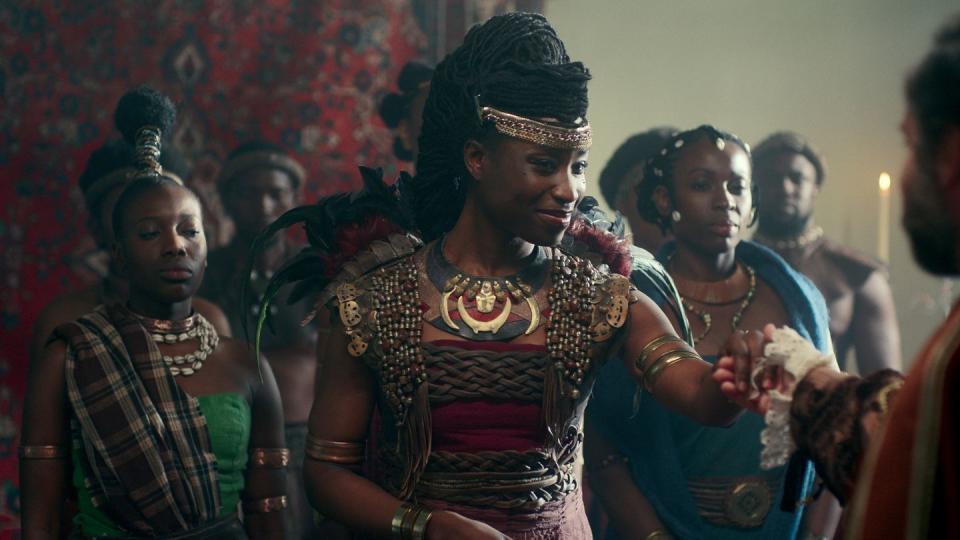
It is believed that Njinga acted not out of vengeance or pride, but because she believed she had what it took to prevent the unimaginable horrors of slavery from reaching Ndongo.
Her desire to see the nation free from the violent exploitation of chattel slavery drove her.
Her calling, if one should call it that, also came with spiritual sacrifice on a grand scale. Just another heartbreaking symptom of slavery with much deeper ramifications than most people today really consider.
In order to secure the backing of the Pope, Njinga needed proof of conversion for her and all of Ndongo. Not only was she forced to publicly forgo her cultural beliefs in favour of Christianity, she had to do the same for her nation.
She erected churches throughout her kingdom and organised mass baptisms of her people, all so that she would be able to win the Pope's favour with the view to him recognising her as a sovereign Christian queen and legitimate ruler of Ndongo.
In doing so, she knew the Portuguese would have to accept her status and concede to her demands, as they too answered to the Pope. Among those demands was the banning of slave trading in Ndongo.
While she may have kept her cultural identity and practises connecting her to the ancestors close to her heart, it was important for her campaign that Ndongo be seen as Christian. Those adopted beliefs took root.
Today, "Angola's population is overwhelmingly Christian", according to Britannica. Roughly two fifths of the population is Roman Catholic and another two fifths Protestant, with only one tenth making up traditional beliefs or other religions. Just one tenth for sacred traditions to share between various other religions.
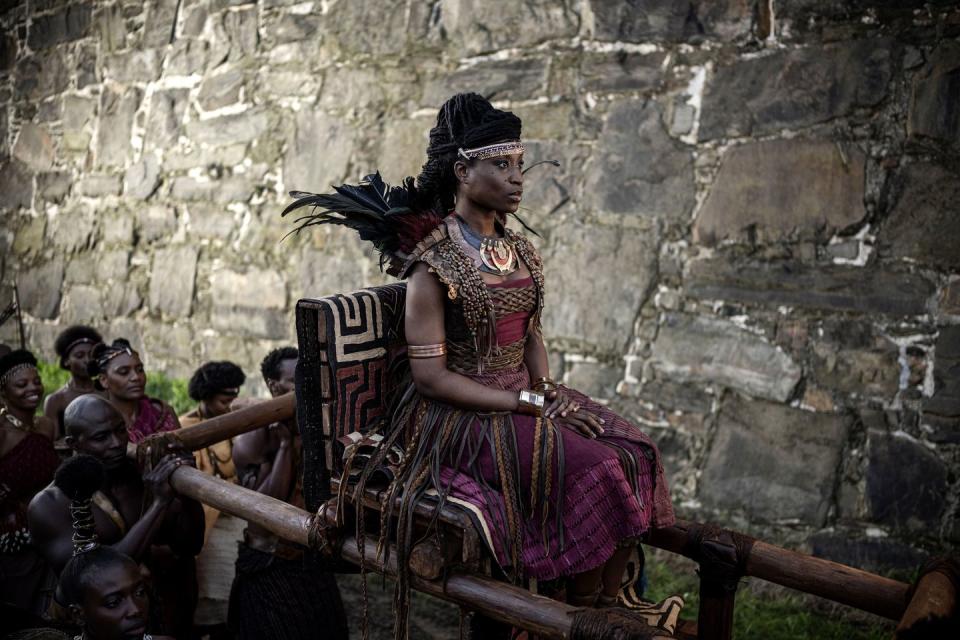
That loss of one's cultural identity strikes me hard.
I am from Sierra Leone, more specifically a place called Freetown. Land of the freed slaves, which means my ancestors are just that, freed slaves. Survivors. Endurers. Tenacious, spirited people who clung to life with a determined spirit just long enough for the family line to survive. However, not much else did.
Our true roots, our origins have been lost. Or more aptly stolen from us in exchange for inhuman violence, backbreaking labour and separated families.
When I hear my mother's mother tongue of Creole and I in turn speak the few words I am able to, there is a sense of pride. Diminished pride, because I wish I knew more but it's there. Still, it's not really my mother's mother tongue, is it? Nor my father's because of the erasure of our true cultural identity.
I don't know what our natural language would have been.
Those customs Njinga fought so hard to maintain have been stripped from so many descendants of those once-enslaved, including those from Freetown.
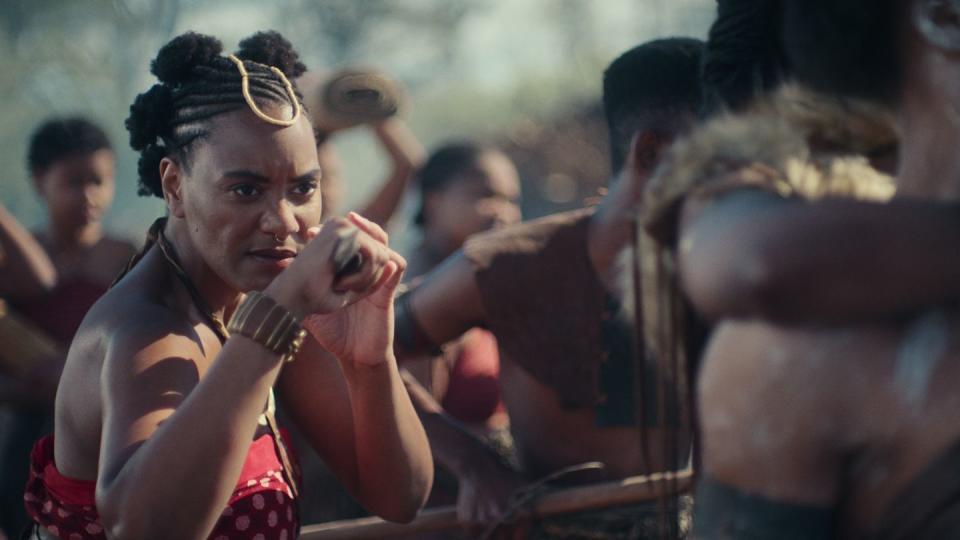
Instead we have what was cobbled together centuries ago, a blend of cultures and customs – some passed down, most borrowed and stuck together to resemble something that may be so distorted from what it once was, and of even that I can't be certain.
How much remains from my ancestors' ancestors, and how much is mimicked from other slaves' scraps of traditions they too tried desperately to hold on to? Now they are all tossed together and in their merging, there is the loss of authenticity.
It is uncertainty that makes things all the more cutting. The not knowing either way.
My mother has always taught me that religions are like buses all going to the same destination. That it doesn't really matter what route you take, Christianity or otherwise, they still all lead to God.
It is an ethos that I have adopted and believe wholeheartedly. Still, I can't pretend I don't feel a sense of loss, and ache for the route our people would have taken had it not been for the interruption of the slave trade. How would those values have shaped me? Not just in my religion but spiritually, emotionally and culturally.
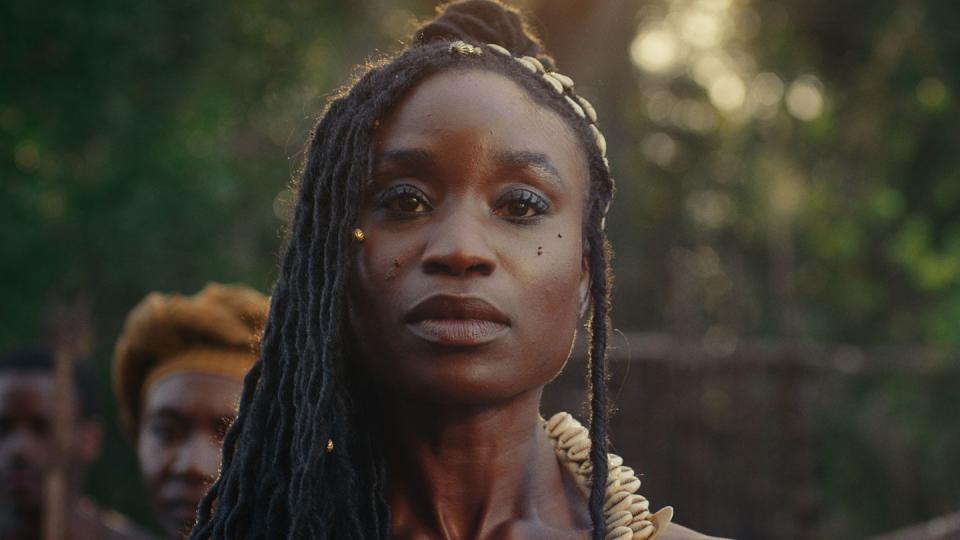
Who would I be today? This reality contributes to the sense of displacement I feel every day, and the questions I have about where I belong. Not British enough but still too Westernised for back home, a home which is only borrowed thanks to slavery.
Queen Njinga's story is important for a multitude of reasons but not least because it contextualises just a small fraction of the effects of the transatlantic slave trade.
There was so much to gain from the retelling of Njinga's story. For me, on a personal level, it gave voice to the loss of identity and the importance of those traditions.
This expansion of understanding is but the tip of the iceberg when it comes to the causal effect of the slave trade. It has had a massive impact that lingers on for generations and illustrates the importance of what she was trying to achieve in ensuring the independence of her kingdom – but also in trying to preserve their way of life. For that she deserves not to be lost to the archives.
African Queens: Njinga is available to stream now on Netflix.
You Might Also Like

